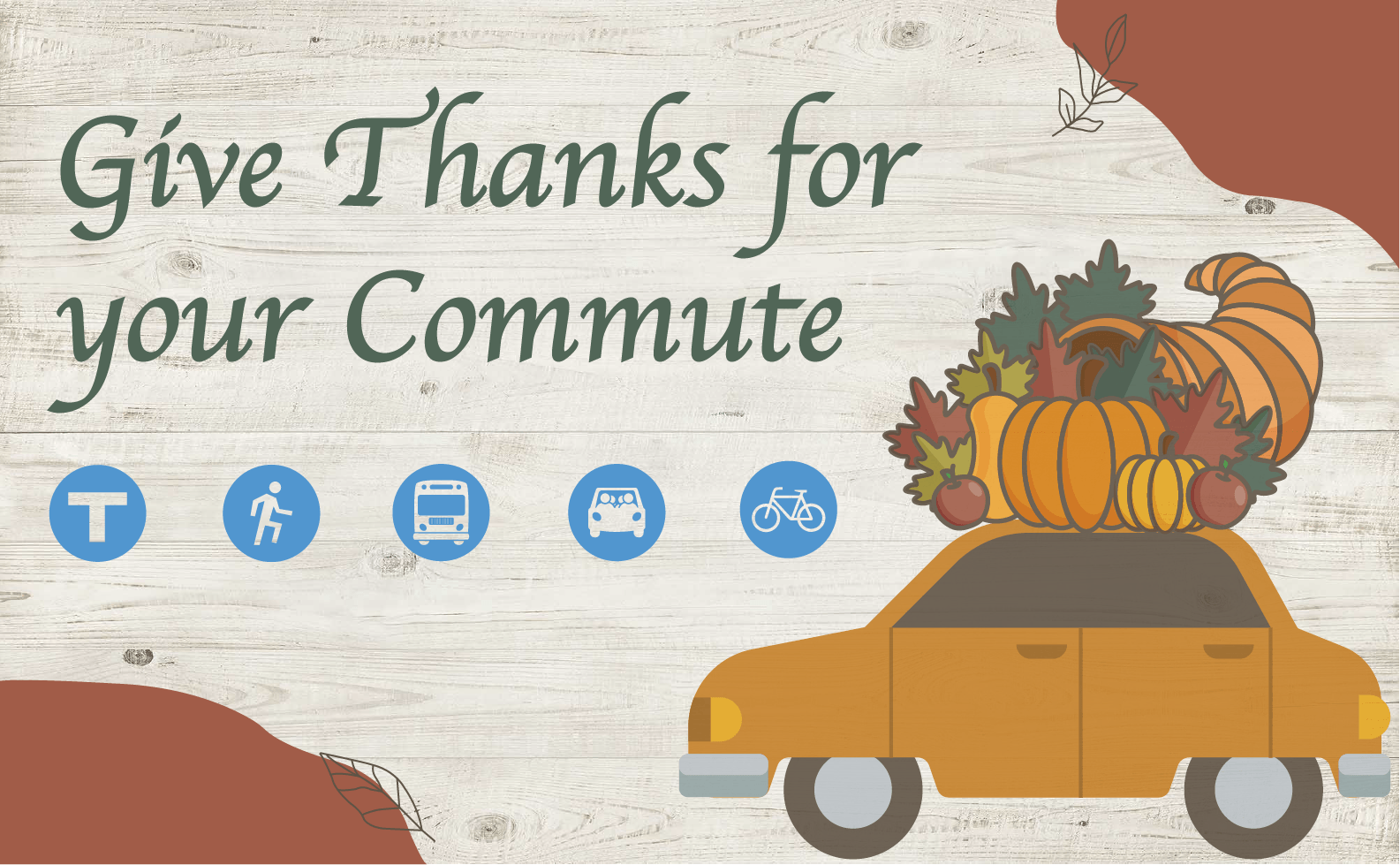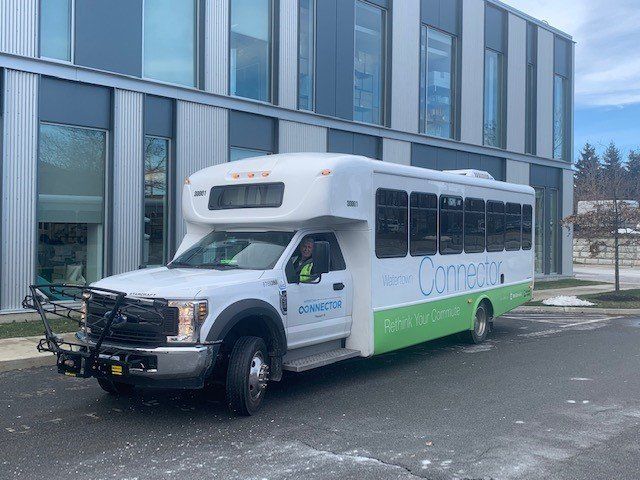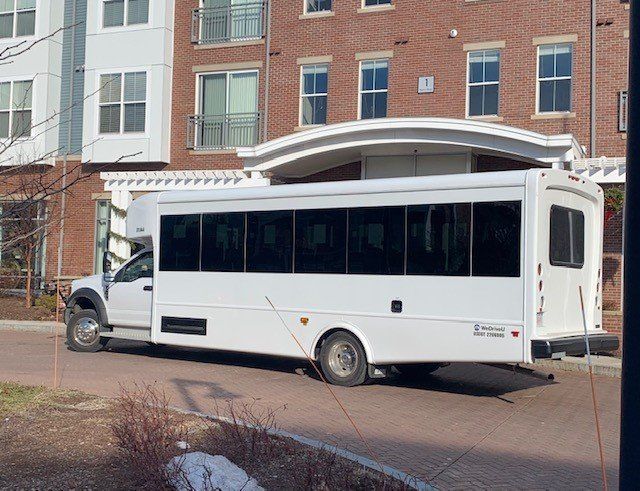It's Move More Month
It's Move More Month
During the month of April, the American Heart Association wants you to commit to getting – and staying – more active. That’s because April is Move More Month.
The U.S. Department of Health and Human Services
reports that only about one in three Americans get the amount of recommended physical activity (about 30 minutes per day) in a given week. Combine that with the fact that most Americans eat far fewer vegetables, fruits, whole grains, and dairy products than they should and it’s no wonder that a recent report
projects that by 2030 at least 50% of all adults will be obese.
A healthy lifestyle that includes regular exercise can have many long-term health benefits including preventing heart disease, cancer, and stroke. When you get out and Move More
you can control your weight, condition your heart and lungs, improve your sleep, reduce your stress and increase your energy.
There are some things that you can do to get on the right track with your exercise routine. Don’t get overwhelmed. Start with something small and make just one change to your routine at a time. Plan out what you are going to do so that you are prepared, and don’t be discouraged if you slip up from time to time. The important thing is to get started and maintain your commitment to making a change.
For those who want to save time while they get healthy, consider biking or walking to work. Most people find up to five miles is a relatively easy bike or walk; six to ten miles is a bit harder, but still reasonable. U.S News and World Report
offers some tips to get started turning your commute into a workout:
- Practice your commute on an off day from work so you can feel confident on the first day.
- Prepare all of your clothing and equipment in advance and try to think through everything you will need.
- Be safe and always have a back-up plan in case it starts to rain or get dark earlier than expected.
The American Heart Association has many resources available on their website www.heart.org
including a toolkit
to help you get started planning a Move More Month event at your location.
This blog post originally appeared on the TransAction Associates
blog, Driven, and was reprinted with permission
[source: http://transactionassoc.com/move-more/].

Get Ready to Ride: Bike Month is Here! Spring is in full bloom! The days are longer, tulips are popping up, and if you have allergies, you might be sneezing a bit more. But there's good news for cyclists: the warmer weather means it's time to get back on the road. May is National Bike Month , and there's plenty to be excited about for bike enthusiasts in Massachusetts. What is Bike Month? National Bike Month , established in 1956, is all about celebrating the joy of cycling, promoting its health benefits, and encouraging more people to give it a try. A key part of this celebration is Bike to Work Week, which falls in the third week of May, with Bike to Work Day on the Friday of that week. This year, Bike to Work Week is from May 13 to 19, with Bike to Work Day on May 17. What's Happening in Massachusetts for Bike Month? Massachusetts is a great place to be if you love biking, and Bay State Bike Month , hosted by MassBike , has a full schedule of events to keep you moving. If you're looking for group rides or ways to get involved, this is your go-to resource. Here are some of the events that took place in celebration of Bike Month:
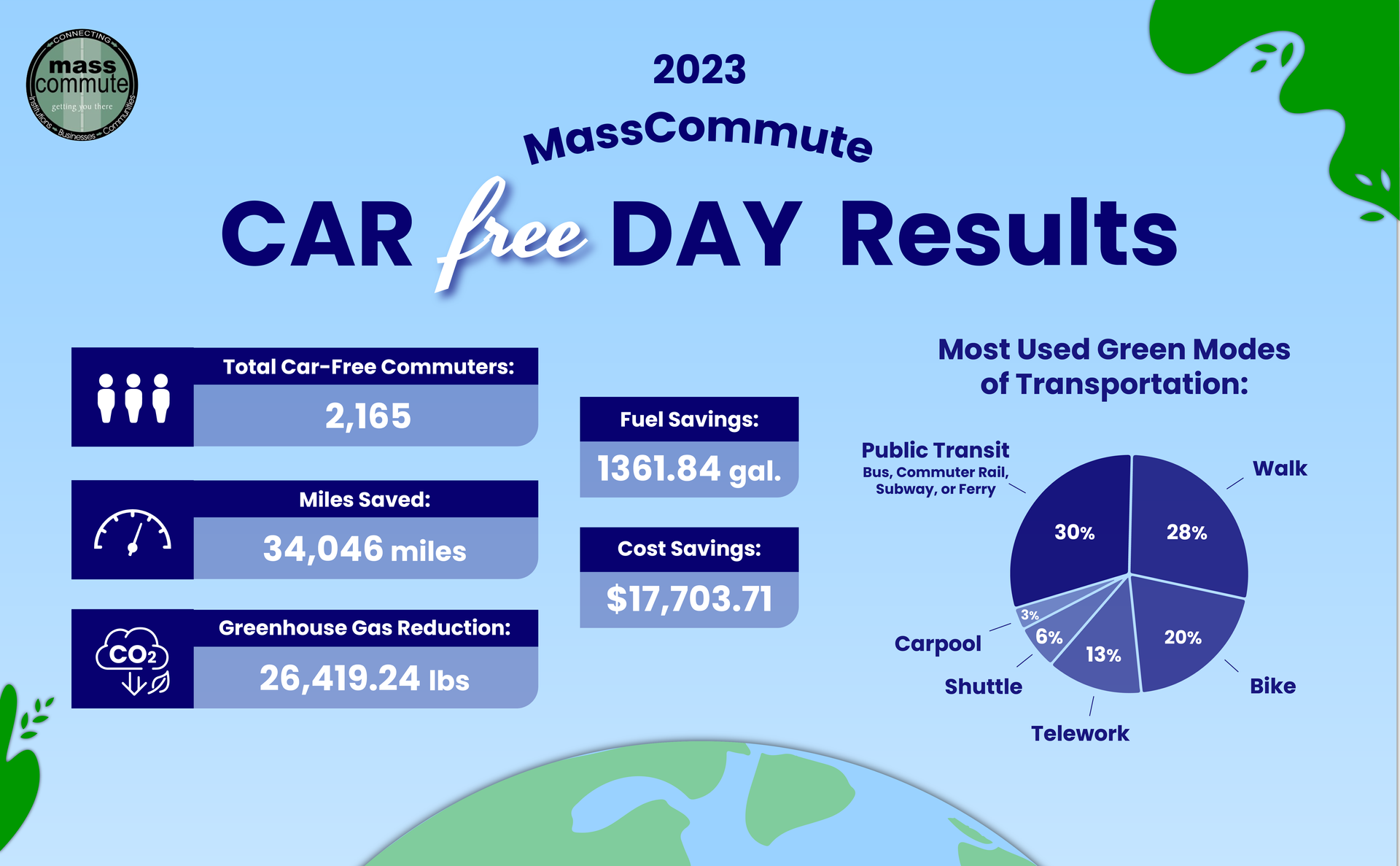
World Car-Free Day 2023 was a huge success! Organized in a variety of ways around the globe, every event shared the unifying goal of reducing the number of cars on the road. The Watertown TMA participated in MassCommute 's 2023 Car-Free Day, the Commonwealth’s Coalition of 15 TMAs to promote and celebrate Car-Free Day in Massachusetts. Commuters who participated helped to make a positive impact on the environment and contributed to a greener Bay State!
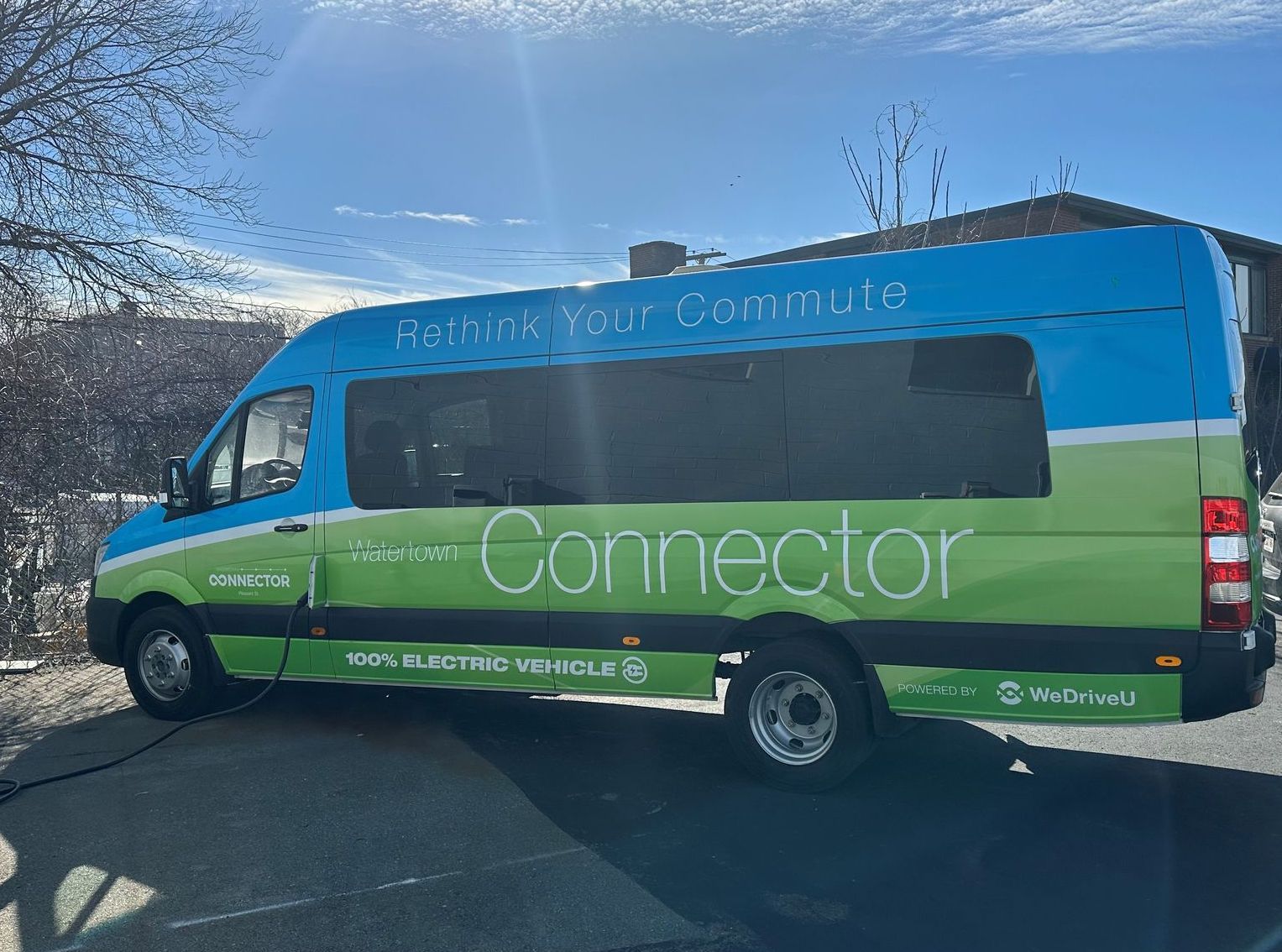
The WatConnector launched on September 7, 2021, with hourly service between Watertown Mews on Pleasant Street and Harvard Square. Starting February 13, 2023, the WatConnector will go electric and will run every half hour. Thanks to a grant from MassDOT, along with other public and private funds, two new electric shuttle buses were purchased and will replace the existing gas shuttles.

As a green commuter, you’ve done your part to help the environment. You found a carpool partner, coordinated schedules, made the trip in together. But what if you arrive at work and find that all of the good parking spots are taken? Many organizations have good intentions when they designate special preferred carpool parking spots in a prime location near an entrance. One carpool space reduces the need for at least one other parking spot. Promoting carpooling is a great way to reduce your parking demand and encourage commuters to share the ride. However, without the proper enforcement and program management in place, the positive impact of the preferential parking incentive can lose its effectiveness. That’s where having a partner like the Watertown Transportation Management Association (WTMA) to manage the program can help.
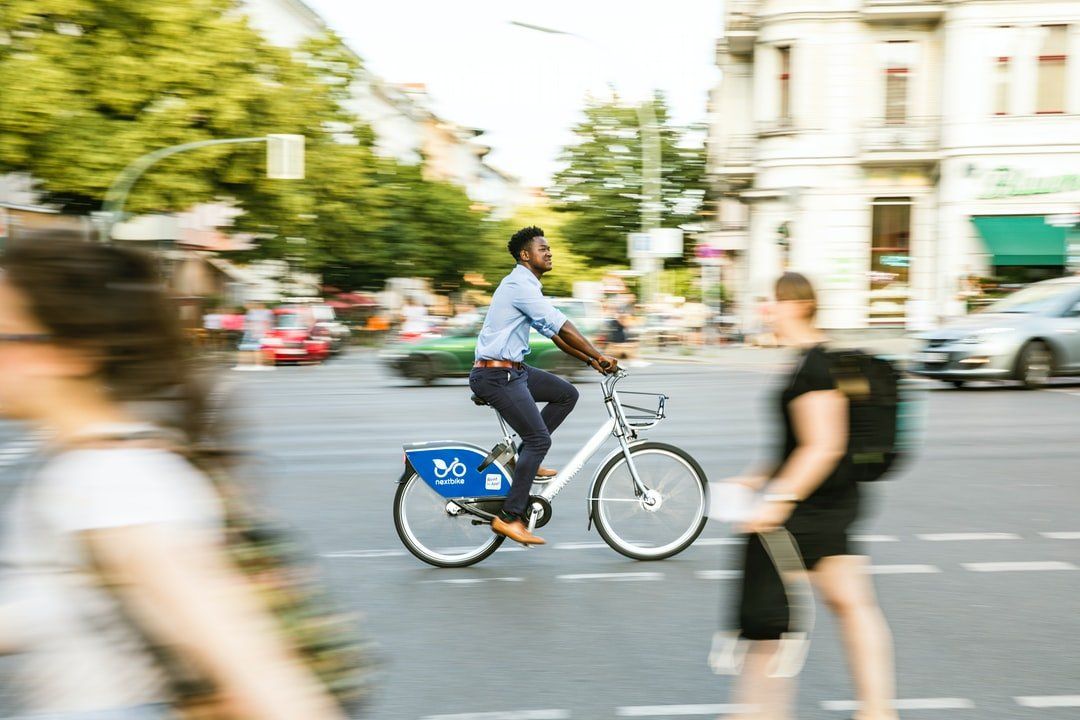
Everyone knows biking is good for you and good for the planet. Incorporating biking to work and during the workday has its advantages on the business side of things too. Studies have repeatedly shown people who bike are healthier (and therefore take fewer sick days), arrive to work less stressed, and are more productive. Need even more reasons? Below are just a few more of the benefits of biking for your commute: Avoids unhealthy traffic congestion Helps to improve air quality Saves on gas Avoids parking costs Increases your physical activity Reduces your stress Be a member of the bike commuting community Feel the thrill you get from bike riding

The MBTA Forging-Ahead service cuts were approved by the MBTA's Fiscal Management and Control Board (FMCB) on December 14, 2020. These reductions are being made based on an overall 80% drop in ridership due to the pandemic. Although these cuts are not as severe as originally proposed by the MBTA in early November, they are significant and will impact the Watertown commuter community. According to the MBTA, by focusing on the reductions to service frequency, this allows for better preparation to increase service when ridership returns, after the widespread vaccine distribution.


